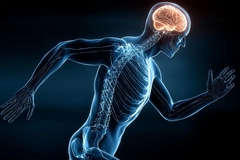Novel AI can reduce malnutrition among vulnerable long-term care residents, study says

31 Jan 2022 --- A new technology that records and monitors food intake might support the health of long-term care home residents by reducing malnutrition, which affects 54% of older adults in care homes. The system uses artificial intelligence (AI) to analyze photos of residents’ plates to determine how much they have consumed.
Malnutrition among care home residents reportedly occurs as a result of residents not finishing what is on their plate, and can go unnoticed by even the most attentive care staff.
The study sought to develop a technology to remedy this issue and support workers in maintaining the nutrition of care home residents.
Canada-based researchers at the University of Waterloo, the University Health Network and the Schlegel-UW Research Institute for Aging conducted the study.
Nutrition-monitoring AI
According to the researchers, the AI system analyzes color, depth and other visual features to estimate how much of each food has been consumed, which is then converted into nutritional value.
 Malnutrition affects more than half of elderly long-term care home residents.The platform is linked to recipes used by the specific care home monitored in the study. Using AI, the system keeps track of how much of each food was eaten to make sure elderly residents received proper nutrition.
Malnutrition affects more than half of elderly long-term care home residents.The platform is linked to recipes used by the specific care home monitored in the study. Using AI, the system keeps track of how much of each food was eaten to make sure elderly residents received proper nutrition.
The AI system was accurate within a 5% margin, providing reliable information regarding residents’ patterns of consumption.
To refine the system, researchers collaborated with care workers and dietitians. Ideally, the system would be added to computers already used by staff to keep electronic records.
The researchers say that, at present the technology is unable to differentiate between which food groups a resident has eaten.
Still requires fine-tuning
In most care homes, food intake is monitored by staff, who manually record estimates of consumption by looking at plates when residents finish eating. This practice is prone to human error, at a rate of 50% or more, according to Robert Amelard, a postdoctoral fellow at University Health Network.
This is especially significant for elderly patients, who often have specialized nutrition requirements in their old age.
Since many residents are unable to speak up or remember what they ate, it is crucial to their health that their nutrition is monitored properly. Based on current statistics, long-term care staff are in dire need of systems to support their work.
“Automated tools may provide a time-efficient, cost-effective and objective alternative,” say the researchers in the study.
“Right now, there is no way to tell whether a resident ate only their protein or only their carbohydrates,” says Kaylen Pfisterer, research co-lead. Pfisterer’s “vision” for the tech is that it will one day be able to flag changes in food intake for staff and monitor infection control.
Edited by Olivia Nelson











